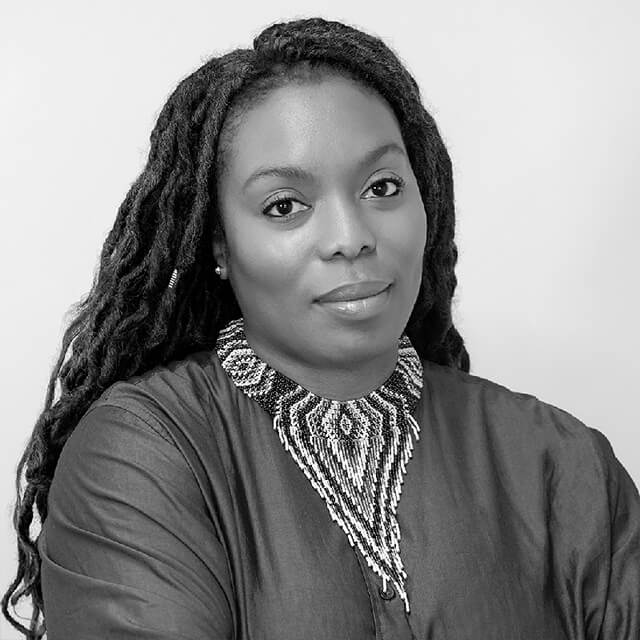On Friday, Nov. 3, 2023, Professor Ifeomasinachi Ike arrived at Macalester College to speak at the 10th biennial El-Kati Lectureship. The lectureship honors Macalester Professor Emeritus Mahmoud El-Kati as a lecturer, writer and commentator on the African American experience. El-Kati taught history as it pertains to the Black experience from 1970 to 2003.
The year El-Kati retired was the very same year the American Studies department at Macalester was born, along with the start of the lectureship. It is an opportunity for the department to bring a distinguished scholar to campus for a public presentation, classroom engagement, and conversation.
Ike is a professor, policy advocate, lawyer, and author; most recently she published a book titled The Equity Mindset: Designing Human Spaces Through Journeys, Reflections and Practices.
The night began with a warm welcome from Professor Duchess Harris. She grounded the evening with a land acknowledgement and many thanks to those who helped plan the event. She introduced Professor El-Kati, who was in attendance, and thanked him for the work he did at Macalester and for the larger community. She finished by introducing Professor Ike.
The lecture was titled “A Space for Celia: Designing Spaces for the Bodies We Don’t Remember, Prioritize, or Center.” Framed as an open letter, the talk was an invitation for the audience to participate and think critically.
One tool Ike used throughout the lecture was the idea of the red and blue pills from The Matrix. The “red pill” represents following the system laid out for us; normalizing systems of erasure and injustice by complying to racist ideology through systemic racism. The red pill connotes allowing oneself to participate in a “system that lies to everyone in it,” as Ike put it.
Ike spoke on how it’s important to frame this lecture with the red pill because in order “to dive into how to disrupt a thing, we must understand a thing” Ike said. That “thing” being the racist and exclusionary systems we participate in or reject every day.
Ike continued by connecting the titular name Celia to the red pill as an introduction to the “blue pill.”
Celia was a young girl who lived in the 1850s and was convicted and hanged for murdering her master to avoid continuous rape. Ike explained that while Celia had limited options, she chose to disrupt the system at a very high cost to herself.
“Anything that is designed can be undesigned,” Ike said. Where the red pill is not recognizing systems of injustice, the blue pill is choosing to recognize and disrupt, which can exist in many different ways.
Ike framed the first step to disruption through the idea of testing assumptions. She asked “why do we send emails?” The basis of an email is to communicate. But she then pushed and asked; “Are there other ways we can communicate? Why are we not using those ways?” In asking these questions, it is revealed what society values: fast, efficient communication that does not leave space for how people are doing.
It is of utmost importance that we begin to question the systems we participate in in order to create disruption for ourselves. We must “confront [our] own identity” because “we have a lot to learn about what it means to live with oppression,” Ike said.
After explaining some more examples of choosing the “blue pill,” Ike concluded her lecture the way she began, with an invitation.
“The burden can’t be on the people experiencing most of the things to fight for their lives and ours,” Ike said.
She emphasized the idea that we must use whatever access to privilege we have as a pathway to disruption.
“If we’re going to move forward, we actually have to look back,” Ike said.
Ike centered part of her lecture around Celia because she wanted to emphasize the importance of our histories, the individual lives of disruption that model for us what fighting for equitable spaces might look like. In a culture of dominant whiteness, we are flooded with historical amnesia. Ike invites us to look to the past for models of disruption that are hidden by systems of racialized oppression.
Showing a video clip of Toni Morrison titled “Trauma, Survival, and Finding Meaning” in which Morrison talks about the idea of goodness and our own individual choice to do something with our lives that we respect. Ike explained after showing the clip that we get to question who we deserve to be.
“What does a whole community look like?” Ike asked the audience. “When we see each other as both human and bruised, that is the attempt,” Ike said.
The floor was opened for a short Q&A before being formally closed out with a speech from Professor El-Kati.











